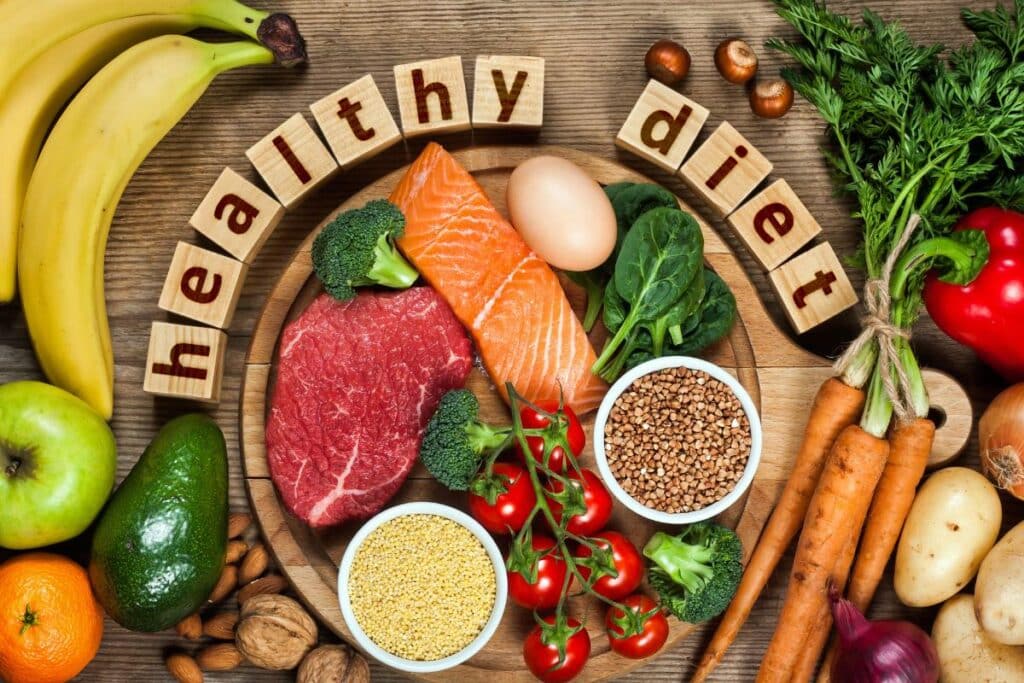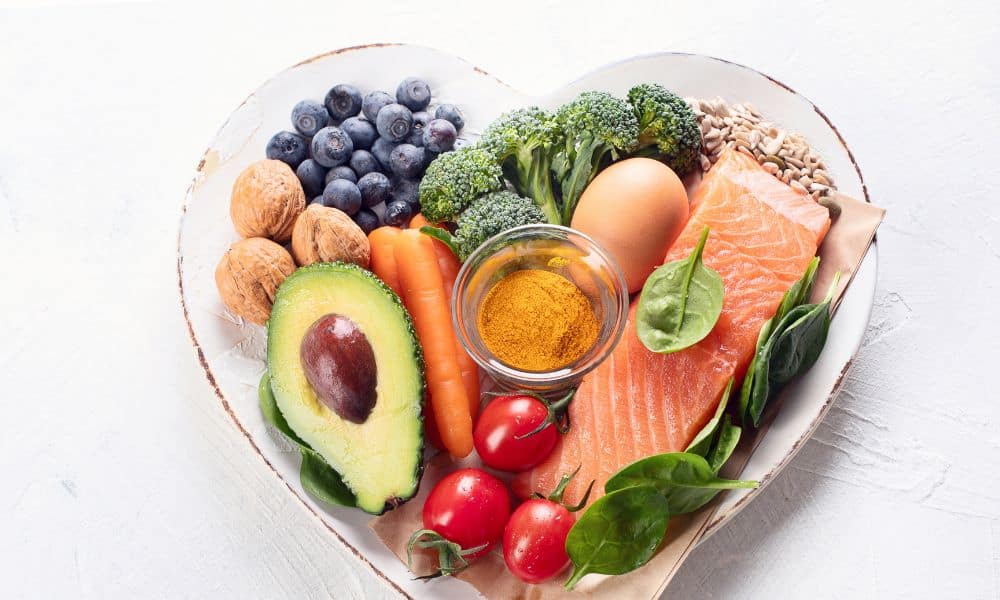Losing weight and shedding unwanted body fat is a goal shared by many. While there’s no one-size-fits-all solution, a well-structured diet is key to effective fat loss. In this article, we’ll explore the principles of the best fat loss diet, providing a comprehensive guide to help you achieve your weight loss goals.
1. Calorie Deficit
Creating a calorie deficit is at the heart of any effective fat loss diet. Simply put, you need to burn more calories than you consume. This can be achieved by reducing calorie intake, increasing physical activity, or a combination of both. A calorie deficit is at the core of fat loss. When you consistently consume fewer calories than your body burns, it forces your body to use stored fat for energy, resulting in fat loss.
2. Balanced Macronutrients
A balanced diet includes a mix of macronutrients: protein, carbohydrates, and fats. Protein is essential for muscle preservation, carbohydrates provide energy, and healthy fats support overall health. Balanced macronutrients provide a well-rounded diet. Proteins, carbohydrates, and fats are essential for overall health and balanced energy levels, helping you maintain the calorie deficit necessary for fat loss.
3. Whole Foods
Choose whole, unprocessed foods whenever possible. They are more nutrient-dense and less calorie-dense than processed foods, making you feel fuller for longer. Whole foods are nutrient-dense and provide a sense of fullness, reducing overall calorie intake. They are also less calorie-dense than processed foods, contributing to fat loss.
4. Portion Control
Keep portion sizes in check. Using smaller plates, measuring servings, and being mindful of portion sizes can prevent overeating. Portion control prevents overeating. Smaller, well-managed portions help you stay within your calorie limits and manage your appetite effectively.
5. Lean Protein Sources
Protein is your ally in fat loss. It aids in muscle preservation, boosts metabolism, and reduces appetite. Incorporate lean protein sources like chicken, fish, tofu, and legumes into your diet. Lean protein sources promote muscle preservation and boost metabolism, enhancing the calorie deficit’s effect on fat loss.
6. Fiber-Rich Foods
Fiber-rich foods, such as fruits, vegetables, and whole grains, promote satiety and aid in weight loss. They also support digestive health. Fiber-rich foods promote satiety, preventing overconsumption, and support digestive health, contributing to fat loss.
7. Hydration
Staying hydrated is crucial for overall health and can prevent the misinterpretation of thirst as hunger, reducing unnecessary calorie intake. Hydration helps control appetite and supports metabolic functions. Drinking enough water ensures you don’t misinterpret thirst as hunger, reducing calorie intake.
8. Limit Sugar and Processed Foods
Minimize sugary drinks, desserts, and processed snacks. These can lead to spikes in blood sugar levels and cravings. Limiting sugar and processed foods prevents blood sugar spikes and cravings, making it easier to stick to a calorie deficit.
9. Regular Meals and Snacks
Eating at regular intervals helps maintain steady energy levels and prevents overeating due to extreme hunger. Regular meals and snacks maintain steady energy levels and prevent overeating, as they reduce extreme hunger episodes.
10. Consistency
Consistency is the key to long-term success. Sustainable changes in eating habits are more effective than quick fixes or extreme diets. Sustainable dietary changes and exercise routines keep you on track and prevent weight regain.
In summary, a calorie deficit, balanced macronutrients, whole foods, portion control, lean protein sources, fiber-rich foods, hydration, limited sugar and processed foods, regular meals and snacks, and consistency all work together to speed up fat loss by promoting steady energy levels, appetite control, muscle preservation, and efficient calorie management. These principles help you maintain the calorie deficit necessary for fat loss while keeping your body healthy and energized.
Potential Mistakes to Avoid
1. Relying on Fad Diets
Avoid diets that promise quick results but are difficult to maintain in the long run. Fad diets often promise rapid weight loss through extreme and unsustainable restrictions. While they may lead to short-term weight loss, they’re challenging to maintain over time. When you stop following the diet, weight regain is common, leading to a cycle of weight loss and gain. This yo-yo dieting can be detrimental to your metabolism and overall fat loss goals.
2. Over-Restricting
Extreme calorie reduction can slow metabolism and lead to nutrient deficiencies. Severely limiting calorie intake can slow down your metabolism and lead to muscle loss, which makes it harder to burn fat. Additionally, over-restricting can result in nutrient deficiencies, as you may not be getting essential vitamins and minerals your body needs for efficient fat burning.
3. Not Tracking Progress
Regularly assess your progress through measurements, photographs, and journaling. Without monitoring your progress, it’s challenging to know if your fat loss efforts are effective. Regularly tracking measurements, photographs, or journaling can help you make necessary adjustments to your diet and exercise routine to continue progressing toward your goals.
4. Skipping Meals:
Skipping meals can lead to overeating later in the day and hinder your weight loss goals. Don’t skip meals, especially breakfast, it can lead to extreme hunger later in the day. Thus, this often results in overeating and poor food choices, which can sabotage your fat loss efforts. Consequently, regular meals and snacks help regulate your appetite and maintain steady energy levels.
5. Ignoring Sleep and Stress
Poor sleep and chronic stress can hinder fat loss. Prioritize sleep and manage stress effectively. Sleep and stress management play significant roles in fat loss. Inadequate sleep disrupts hormone regulation, increasing appetite and reducing metabolism. Chronic stress leads to the release of cortisol, a hormone that can promote fat storage, particularly around the abdominal area. Prioritizing quality sleep and stress reduction is essential for effective fat loss.
In summary, relying on fad diets, over-restricting, not tracking progress, skipping meals, and ignoring sleep and stress can prevent fat loss by slowing down metabolism, promoting muscle loss, causing nutrient deficiencies, leading to overeating, and disrupting hormone regulation. To achieve sustainable fat loss, it’s important to adopt a balanced and maintainable approach that considers all aspects of a healthy lifestyle.
Conclusion
The best fat loss diet is one that focuses on balanced nutrition, portion control, and consistency. By creating a calorie deficit, consuming whole foods, and maintaining a healthy lifestyle, you can achieve your fat loss goals effectively and sustainably. Remember that fat loss is a journey, and finding a diet that works for you and aligns with your lifestyle is key to long-term success.
If you are on a weight loss journey, share this article on Facebook or Twitter to help others learn more about losing weight.




